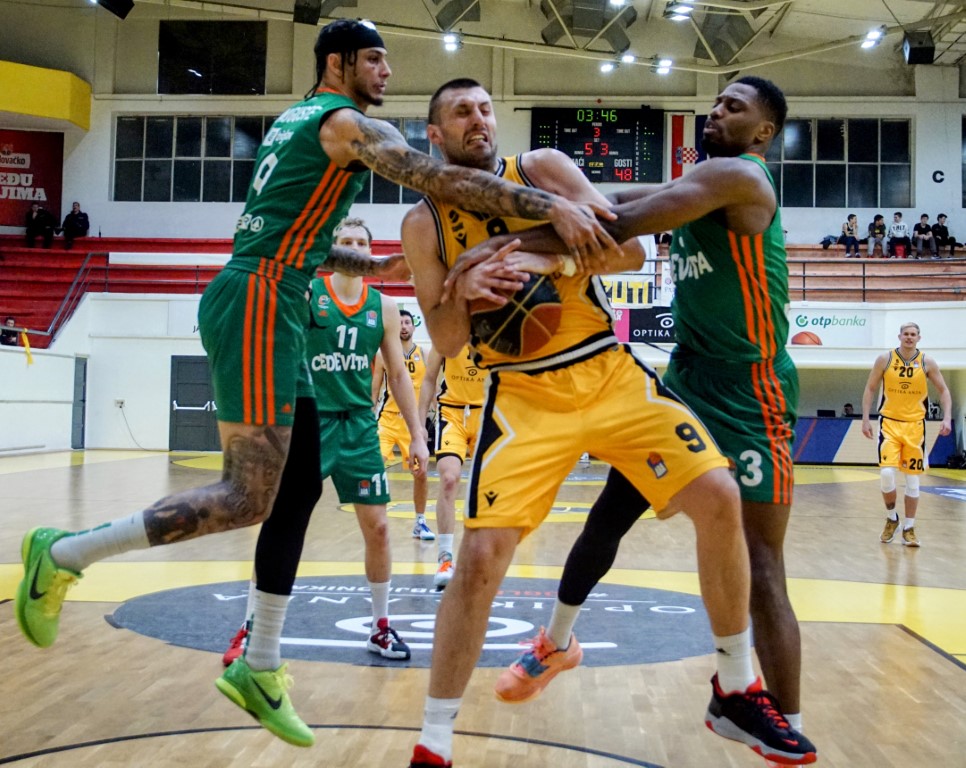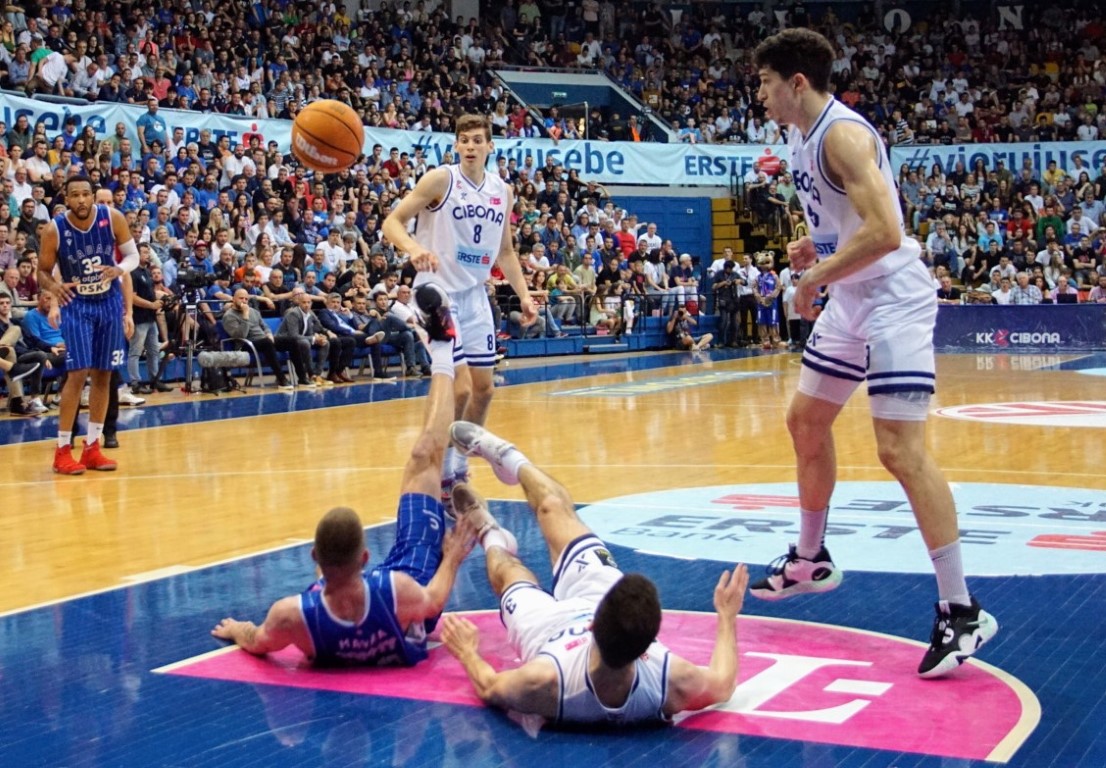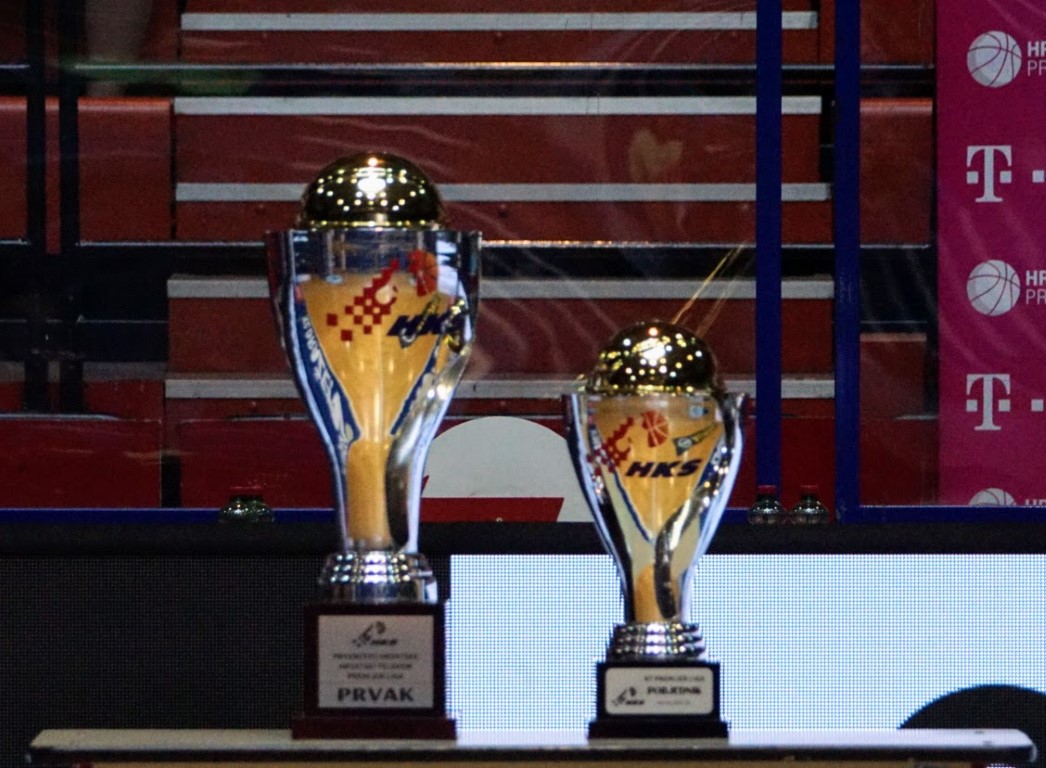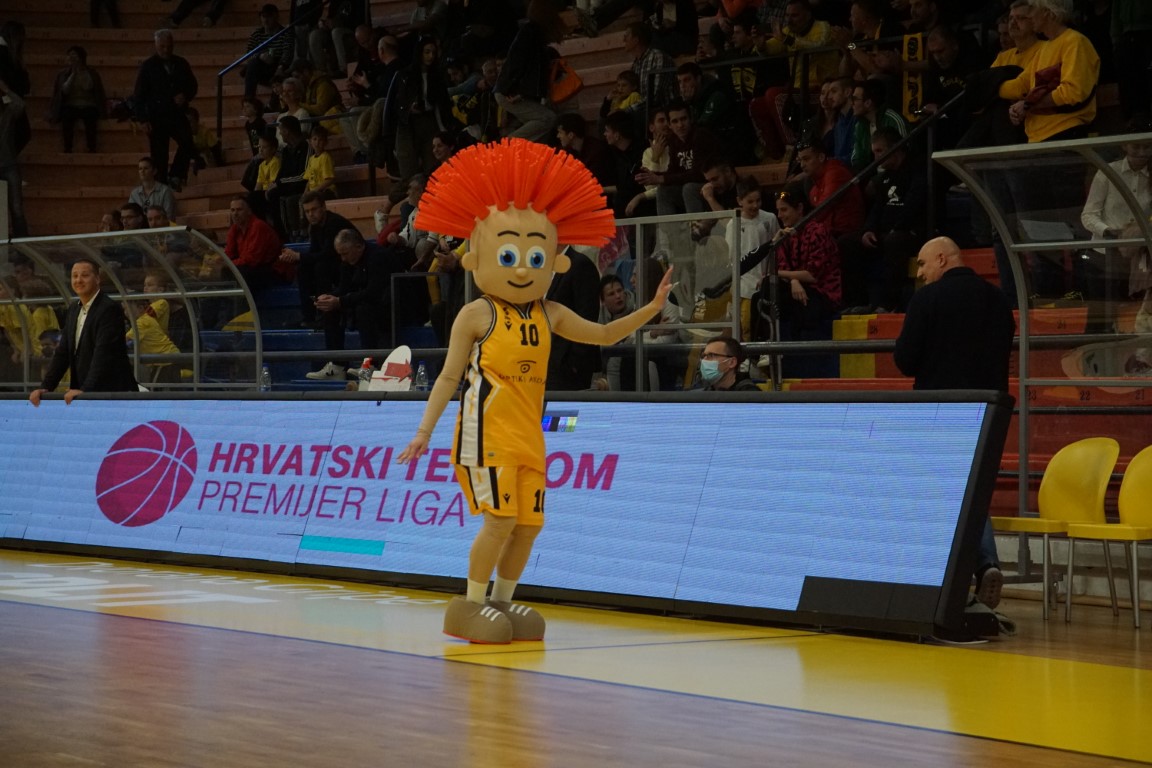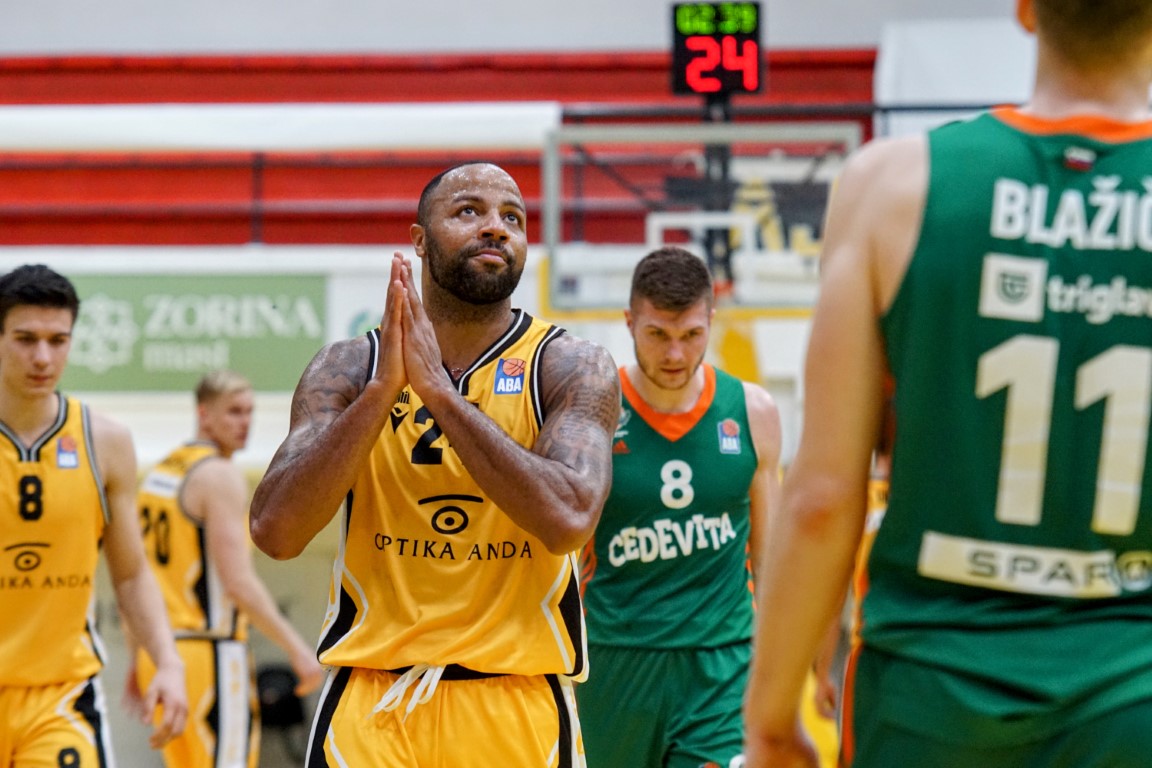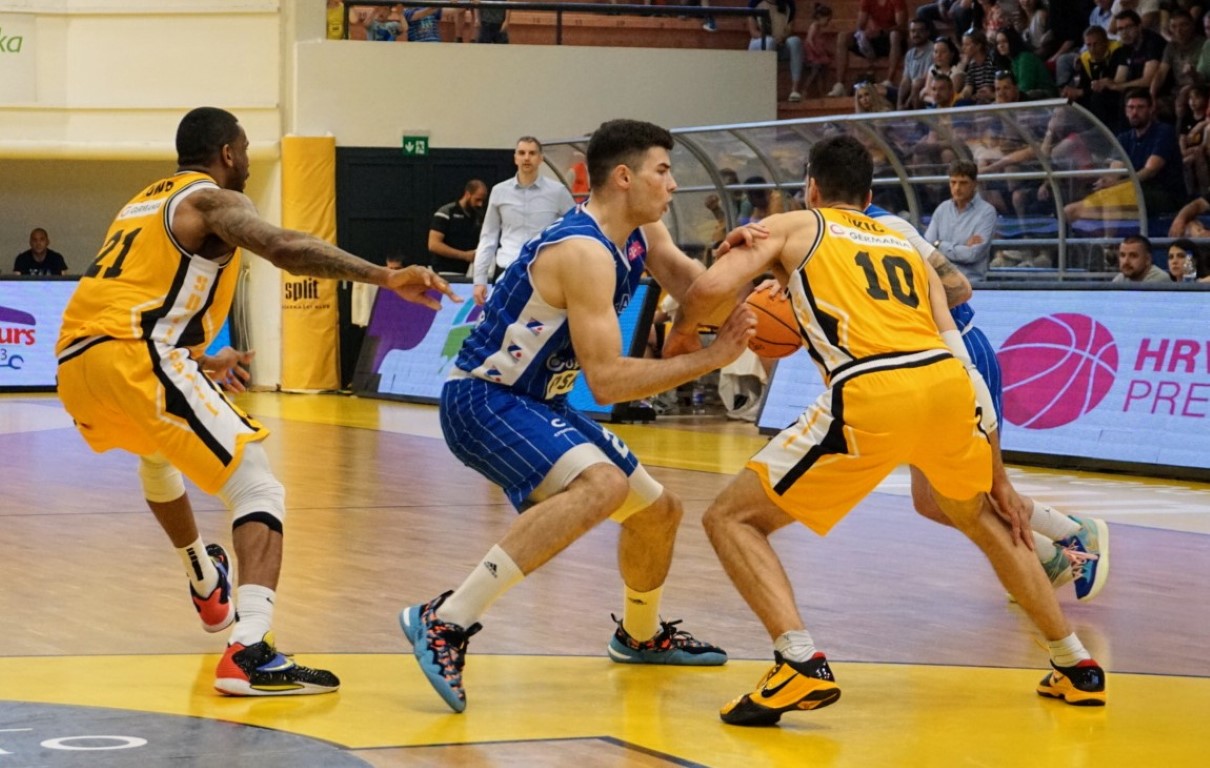Why it is not worth anything. Ništa. Not a single Lipa! (EDITORIAL)
Split, 23.08.2022 - The City of Split is again trying to find an investor for the Basketball Club KK Split. This time it is official. Read the invitation to tender here.
In the tender, the City of Split states the value of the shares which it offers for sale at 4'000'000 EUR, that's the shares it wants to sell, so they value the club at around 6 Million Euro, which is the amount at which all issued shares were handed out.
Our contributor Burak Canboy had considered to invest into the organization in 2013/2014 and has been covering the club for TCN during the last two seasons.
Here is his personal opinion on the value of the club and the politics going on right now.
EDITORIAL:
Let me say it out loud first. Those who don't want to listen to arguments may call me a traitor, a rich foreigner who doesn't understand Croatia, they may want me banished or may crucify me at the next game and then those who actually like to deal with the matter will hopefully read this opinion. In the current state, KK Split is not worth anything. Ništa. Not a single Lipa!
Now it is out. So, why do I believe the team that dominated the late eighties and early nineties, the big Jugoplastika Split that was officially named the best European club of the 20st century by FIBA is currently not worth anything? The club that resides at Gripe, a gym that was built mostly by the hands of its members. In a mecca of basketball that hosts the biggest trophies and most valuable jerseys in the "yellow salon". The club that is quite correctly called one of the most successful clubs in the history of European basketball. Winning three consecutive EuroLeague titles, two Korač Cups plus 3 Triple Crowns, 6 Yugoslav Championships, 5 Yugoslav Cups, 5 Croatian Cups and 1 Croatian Championship. A club that competes in the prestigious ABA League and plays for championships in the Croatian National League. A club that created greats like Branko Radović, Ratomir Tvrdić, Toni Kukoč, Dino Rađa, Žan Tabak, Petar Skansi, Velimir Perasović (please forgive me that I did not list everyone, it is a very long list).
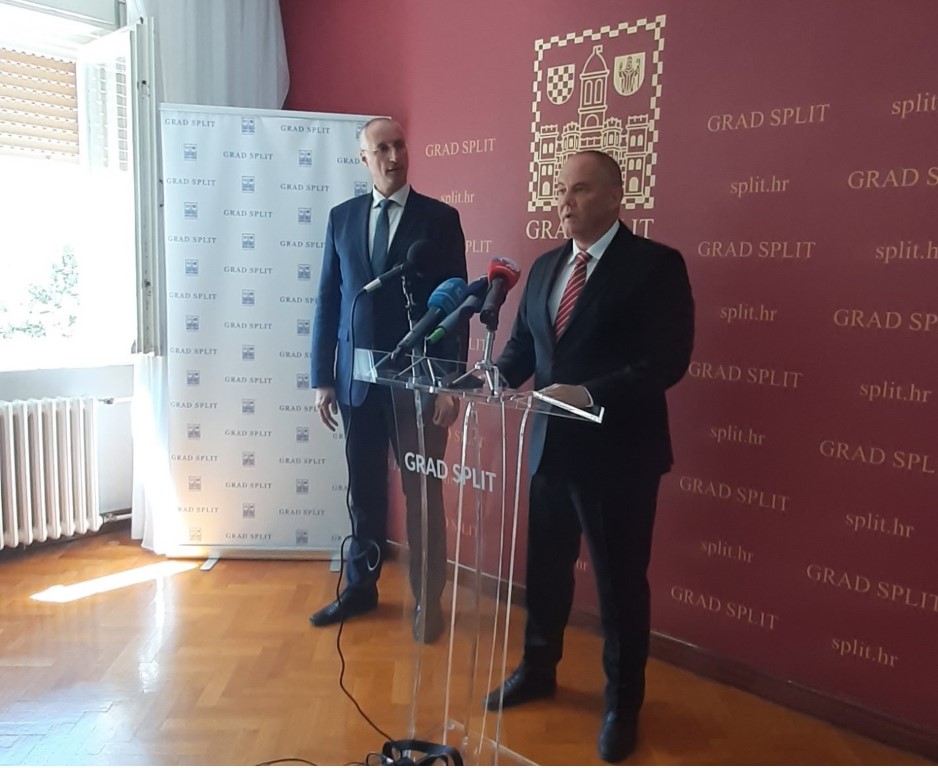
Mayor Puljak and Deputy Kuzmanić presenting their ideas for KK Split (Photo: Grad Split)
Well, in the world of business there is a word for value that cannot be measured by the sum of its assets. It is called "goodwill" or "value of intangible assets". When you look at the world's largest companies with high goodwill, Coca Cola used to be the example in the nineties, today it is companies like Microsoft and Amazon that mainly consist of value which stock markets assess because people are willing to pay more per share than the sum of assets listed in their balance sheets, divided by the amount of stocks issued. Where there is goodwill there is also the opposite. Companies worth less than their sum of assets. You hear stories of companies given away for a dollar sometimes but more often than not, those companies are not even worth the dollar. They disappear more or less silently because nobody wants to risk renovating, restructuring and rebuilding such companies.
Now that I have given a short excursion to the business world in the US, let's get back to Europe, the Balkans (or as some people like to call it Southeast Europe nowadays), Croatia, Dalmatia, Split, Gripe, KK Split. There is a reason why I am listing them in this order. but all of these have a reason why the club is not worth anything. Ništa. Not a single Lipa!
European Union:
Let's start with Europe. During the Global Financial Crisis of 2008, which became a european financial crisis in the years after and lead to Greece being put under financial supervision (which just ended a few days ago btw.), some people started to wonder how football clubs and to some extent also basketball clubs in Greece could have such huge budgets if the country is basically bankrupt. Clubs like Panathinaikos, AEK, Olympiakos and PAOK were very successful in Europe and globally known to be paying very good salaries, frequently bringing in players from the NBA or stopping players from going there.
This was not just an exclusively Greek behavior, but also quite normal in Italy, France and Spain and obviously also in most other european countries, but they are not so well known for their well paying leagues. The spotlight was just shining brightest onto Greece, while Europe wanted to stop waste of taxpayers' money.
CEDEVITA: Money goes to Slovenia now (Photo: Burak Canboy)
The clubs and local governments had become so intertwined that big parts of the clubs' budgets consisted of money being transferred from the governments to the clubs declared as "sports education", "funds for sports equipment ", "youth support", "tourism support", "business growth support", "gym maintenance " and many other creative ways. While all these can be very much in the interest of the public and are surely worth spending public money for, in most cases that money was not used for that purpose, but for the running expenses of an internationally competing professional team. This practice has been deemed illegal by the European Union and is considered a "preferred subsidizing of business". Now, the City of Split has been very creative as well in the past years, but it is quite obvious that continued participation in the ABA League and playing for championships in the croatian league would not have been possible if all salaries, participation costs and travel expenses of the professional team had had to be paid for by income from TV broadcasting rights, ticket sales, sponsors and other revenues such as sale of merchandise. During the last years the club had over and over accumulated losses that the city had to cover by increasing the capital of the club. Now, creative as it may be, in the end it is the exact behavior that the EU wanted to stop. Now, if the club did not have money coming from the city, it would be bankrupt. Worth nothing. Ništa. Not a single Lipa.
Balkans/Southeast Europe:
Yugoslavia the former world force in basketball is shattered. Romania, Bulgaria, Albania were never really big. Bosnia & Hercegovina 45th in the world, Kosovo 71st and North Macedonia 52nd play no large role, Croatia as described later is in a free fall. Serbia (4th), managed to re-establish some of the former glory, Montenegro is a recent positive surprise (25th) and Slovenia is a rising star (3rd), but in general basketball business at successful clubs is mostly run by dubious owners/presidents or player agencies often enough operating in dark grey areas of the law and federation regulations (surely nobody wants to see KK Split becoming a front for some completely illegal business). In countries that are non-EU, strong government funding is still predominant. And if you watched the finals of this year's ABA League between Partizan and Red Star you got to see how some fans like to use the game to show how ugly and disgraceful sports can be.
Extra value for the club: Ništa. Not a single Lipa.
Croatia:
The national team could not even pass a group with Finland (35th in the world) and needed 2 overtimes to barely beat Sweden once (51st in the world !), and now rightfully has to play in a group with Switzerland (world's 60th) and Austria (61st) to re-capture just the opportunity to qualify for the World Cup in 2025.
Zadar and CIBONA on the floor? (Photo: Burak Canboy)
KK Split's competitors in the national league
- CEDEVITA, has seen the big money move to Slovenia.
- CIBONA is clinically dead, pretty much bankrupt, kept alive with tax payers' money and/or lack of transparency.
- KK Zadar is clinically dead, kept alive with tax payers' money and/or lack of transparency.
Most other clubs in the croatian league are - yes you guessed it right - clinically dead, kept alive with tax payers' money and/or lack of transparency.
Apart from that, favoritism amongst coaches, referees and other officials more often than not stand in the way of effectively developing national talents.
Extra value for the club: Ništa. Not a single Lipa.
Dalmatia:
Turizam, Turizam i Turizam. Do I need to say more?
Croatian Title Trophies. Too far to reach? (Photo: Burak Canboy)
Dalmatia lacks large global or at least international companies that can use a basketball team as their "travelling signpost". When you look for big clubs in Europe you will find Efes, Beko, Armani Exchange, ALBA as sponsors carrying weight for successful clubs or you find teams like Real Madrid, FC Barcelona and FC Bayern Munich profiting from the groundwork, their football clubs have done in finding sponsors and building a name for the organization.
Lack of potential large sponsors, preoccupation with a single economy. Extra value for the club: Ništa. Not a single Lipa.
Split: Politics and Hajduk
The City of Split created an unprofessional presentation for the tender (no assets listed, very short time given for due-diligence, no contractual obligations listed, no own concept or ideas presented). So either some back-room deal is already made or the responsible people think they can find an idiot who is willing to buy the pig in a poke, or as they say elsewhere, buy the cat in a sack.
Then you should not forget that there is already a major power house in town. Football is King and in Split the King is called Hajduk. Instead of trying to benefit from the big brother, a separation is being forced and Torcida named unwanted guests on Gripe.
Lack of potential large sponsors, presence of an overwhelming football power means a lack of positive future paired with involvement of politicians in a business. Extra value for the club: Ništa. Not a single Lipa. (For the involvement of politicians this number should be very large. But negative!)
Efforts in Vain on Gripe? (Photo: Burak Canboy)
Gripe:
Despite wonderful gyms being available in the city like the two larger gyms on Gripe, the small court under Spaladium Arena, the gym at the Pool on Poljud, Spaladium Arena and probably others I don't even know, KK Split continues to practice at Gripe. The home court advantage is canceled out by the limited usability of the space and the poor condition of the building. It is not possible to have multiple teams practice in the gym at the same time. The space in the back of the gym that Dino Rađa helped to renovate a few years ago is good for individual training but overall the layout of the gym is miserable for a basketball club with ambitions.
The building's energy efficiency is terrible, operating costs, high. Existing tenants have been there forever and are probably paying below-market rent.
If the city does not spend considerable money to renovate the gym and give a reasonable long term concession, the extra value for the club: Ništa. Not a single Lipa.
Unless we go back to the plans of Ivo Baldazar or Željko Kerum to sell all or part of Gripe to some real estate investment company and to have them take care of the club in return. But still the value of the club remains: Ništa. Not a single Lipa.
Yellow Salon:
This is a cultural item. It cannot be transferred to a new owner. It has value as a museum. It has value for the city, for the citizens, for the players, for the employees of the club. It should be moved to a place where everyone has access to it. It cannot and should not be transferred to an investor because Cups and Medals cannot be bought.
Value for an investor: Nothing. Ništa. Not a single Lipa.
K.K. Split:
The club has a very long history of not being able to operate profitably. The last administration was not long ago and not much seems to have changed since then when it comes to control, supervision and direction. A long history of mismanagement and even what may be called accepted corruption and embezzlement when it comes to how talented players were treated. Surely Dragan Bender's and Ante Žižić's move to Maccabi with Nikola Vujčić were not "kosher" but nobody was interested in suing for damages. While thinking about things that went missing: the whereabouts of the Korač Cup that disappeared from the Žuti Salon is still not known. Is it?
Shannon Shorter praying for help (Photo: Burak Canboy)
K.K. Mislav a small club without a gym in Podstrana just had the second player go abroad (Tomislav Buljan just moved from Zadar to Spain after Stipe Jelić had already left for Italy in 2019). How many talented players has K.K. Split produced that went abroad. Let's say there are more than Perković and Perasović, but how much money has been paid to the club for players leaving during the last 20 years?
How many young players in the current roster have long term contracts that may lead to income from a sale at some point in the future?
Sorry to say, but the only value in the club is the right to play in ABA League and the croatian first league. But again, what is that worth without the city's subsidies?
Yes. Nothing. Ništa. Not a single Lipa.
Opportunities:
Now, when could an investment into the club make sense? When the city and all people involved understand that the value of shares is nothing. Ništa. Not a single Lipa.
Once that is understood, the company can process the opposite of a recapitalization, a capital reduction. When all existing shareholders have their shares reduced to a value of close to zero or zero, and all existing debts have been cleared, then you can start a fair partnership by raising new money. If the city then wishes to have a 25%+1 controlling share, it will need to invest at the according rate, as a new investor would. Twice as much, if the city of Split wishes to keep 50% of shares.
A sample mission & vision for the club was already gifted to the club and the city in 2014. Look for yourself how much of it has been adopted and how much more needs to be done before you can call the club valuable: KK Split Mission & Vision 2014
"Grado" and his boat "Žuta ljubav"
To give a more local comparison of how the City of Split calculates the value of the club, I will explain by using the example of a boat and a fisherman. Now, at some point in the past, someone sold a boat named "Žuta ljubav" to a local fisherman who wanted to take tourists to beautiful bays that you could only reach by boat. The fisherman was called Grado because he could exactly tell the temperature to the tenth of a degree. The boat was old but it was a wonderful boat. It used to be quite a beauty back in the days. The design had aged well and it was still floating. It could sail near the coast and even a little further out but no longer in blue waters as it once did. "Žuta ljubav" needed a lot of crew to operate and a lot of maintenance, because former owners had taken away important parts and just replaced them with whatever they could find for cheap. Every year, the boat needed an expensive crew to operate, it needed new sails, the engine needed to be repaired, leaks needed to be filled and all moving parts needed to be serviced. The berth needed to be paid. And despite all the work time and money put in, it never looked as good as it once did and always barely stayed afloat because Grado could not afford a full renovation. Even though the boat used to drive people around and conducted business, every year the owner needed to add money from his own pocket. Sometimes more, sometime less.
Tomislav Buljan: From Podstrana to Zadar to Spain (Photo: Burak Canboy)
After years of losing money Grado became tired of taking care of "Žuta ljubav" and asked his oldest son if he wanted to have the boat. He declined, so did his second son and his youngest son. They didn't tell their father the real reason because they were afraid he may be disappointed and die from sorrow. The oldest used his family as an excuse and said that he needed to keep his stable job. The second son said he could not swim and the third wanted to become a musician. So one day Grado took his sorrow to his neighbor and friend Stino. Stino who was known to be brutally honest, gave him a glass of Orahovac and a big glass of cold water. "Enjoy the Orahovac" he said, "you will need the cold water later." "Why?" asked Grado. "Well, my dear friend. Love has made you blind. You have spent so much money on your boat during the last years, and you think it is worth a lot, because you have spent so much time and money on it. But today after almost 6 million Euros spent, it still barely floats, it still costs you a fortune to operate and maintain and even if you didn't use it, you would still need to pay for the berth. Your sons love you too much to tell you, but you managed not to sink the boat, instead you have sunk all your money. No-one will buy your boat, because it barely stays afloat and doesn't make any profit. My friend, when you open your eyes, you will understand that the value of your boat, even though it floats, is zero. Nobody who knows the slightest bit about boating would buy it. If you paid someone to take it, maybe you can get rid of it. But if you ever want to make money selling it, you need to first either spend a fortune renovating it or at least make it profitable. So profitable that you can easily pay the crew, the maintenence, the berth, everything and have money left at the end of the season so you can enjoy a long winter without having to work. Then my friend it will still be hard to sell an old boat, but at least it will be a profitable business. But now it is not worth anything. Ništa. Not a single Lipa." Grado finally understood and when the truth arrived, it hit him like a truck, but at least he still had the small joy of a cold glass of water to look forward to.
Still don't believe me that the value of the club is nothing? Ništa? Not a single Lipa? Well, just go ahead and ask any of the employees of the club to reduce their salary by 50% and give them the rest of salary in shares. Or you could even ask Mayor Puljak and Deputy Kuzmanić who are trying to sell the shares, if they would agree to have their salaries in the next 4 years paid in shares of K.K. Split instead of money. I dare anyone to come forward and say that they would prefer to be paid in shares of KK Split than in Kuna. Guess how many would agree to that and what they would probably say: The shares are worthless, because the value of the club is nothing. Ništa. Not a single Lipa!
The views of the author are not necessarily the views of TCN.


